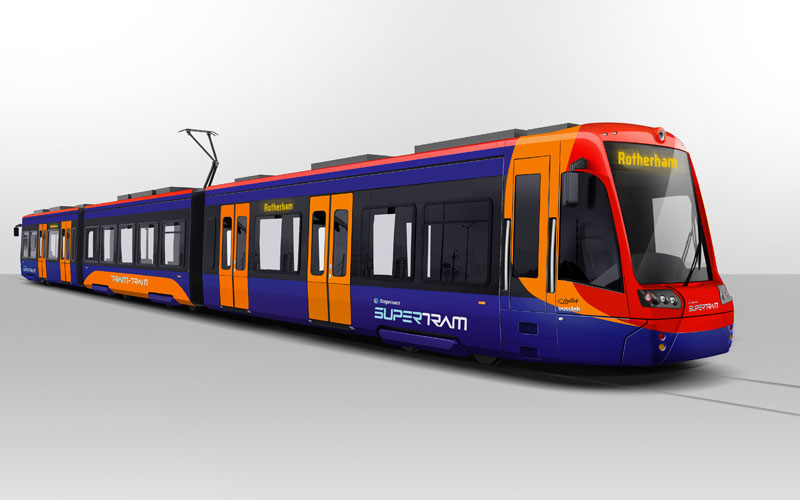It was decided, at some point, to spend £15m to build a hybrid rail connection between Sheffield and Rotherham. It’s late (not too surprising) and over-budget (also not too surprising). What is surprising is just how far over-budget the project has gone: that initial £15m budget has now grown to an estimated £75m, and there may be no end in sight. Hannah Boland reports for the Telegraph:
Transport company Stagecoach has won £2.5m in compensation from the Government after the completion date for the Sheffield to Rotherham tram-train project, for which it is supplying vehicles, was pushed back multiple times.
The National Audit Office (NAO), in a report released on Tuesday, said Stagecoach had claimed “prologation costs” and loss of revenue for the two-and-a-half-year delay of the government-sponsored project.
The scheme was approved in 2012, aimed at modifying train and tram infrastructure and buying vehicles capable of operating on both networks.
The Department for Transport had originally said it would be completed by December 2015, and would cut transport costs in the region.
However, Network Rail, which is undertaking the first stage of development, pushed back the deadline, first in 2014 and then in 2016, to May 2018.
The £15m budget originally agreed between the department and Network Rail has rocketed to £75.1m.
Tim Worstall offers some comments:
We hear ever louder cries, in both the UK and US, that government really must get on with spending billions, trillions even, on building out vital infrastructure — the problem with this being that government isn’t very good at building infrastructure. In fact, government is so bad at building infrastructure that there is a very strong argument to have it built by private economic actors. Yes, true, it’s entirely possible that the plutocrats will then profit from the public, even that only projects which make a profit get built, but we would have, given government’s record, more infrastructure for less money.
At least, that’s the lesson to take from this disaster with the Sheffield-Rotherham tram-train project. It is currently an alarming 5 times over budget and horribly late. Further, at this price it should never have been built. It is simply not possible that the value in use of this will exceed the costs of doing it — this is something which makes us all poorer […]
And here is in fact that cost benefit ratio [PDF]:
1.0 the benefit–cost ratio for the programme when it was approved
in May 2012. The business case was based on benefits to local
transport users. The Department approved the project on the basis
of the ‘strategic’ business case. Wider industry and economic
benefits were considered ‘very uncertain’0.31 the Department’s estimated benefit–cost ratio – based on the
local public transport case – as at October 2016For any project, however funded and whatever it is, we need to have benefits higher than costs. This is simply because economic resources are scarce therefore we need to use them to add value. We have here a project where the benefits are one third of the costs — this is something which makes us all poorer. It should not be done therefore. And even after it was started once this fact became known it should have been stopped.
But it wasn’t stopped, of course:
It wasn’t cancelled for political reasons. It was felt that cancellation would lead to “reputational damage.” The way to read that being that once government has decided to do something not splurging the taxpayers’ money like a sailor on shore leave might call into question the right of government to splurge the taxpayers’ money like a sailor on shore leave.




